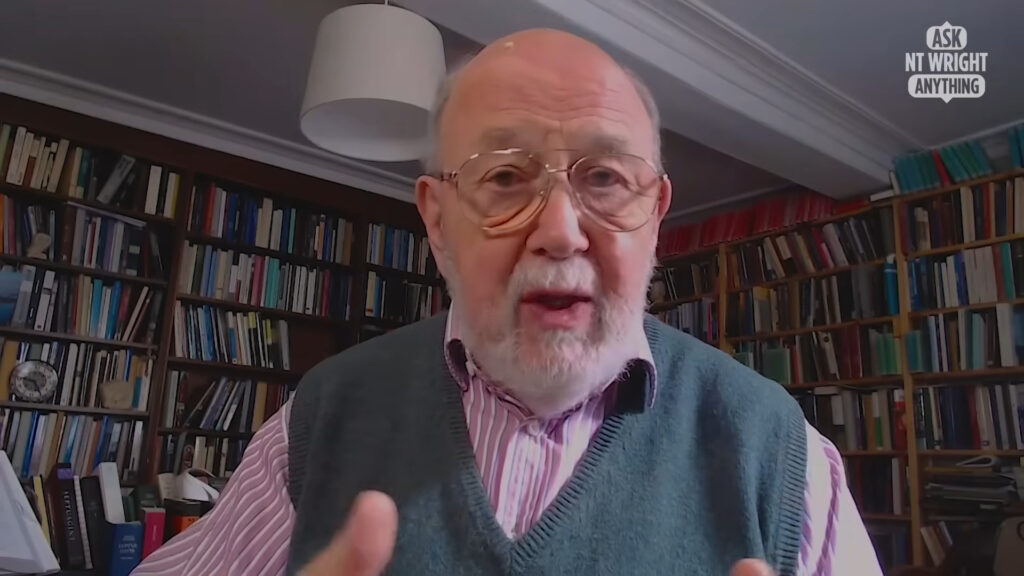Famed New Testament scholar N.T. Wright has weighed in on the state of those who explicitly reject Christ and salvation, suggesting they’ll simply be annihilated or exist in some state of being a creation, but not an image bearer.
We last wrote about Wright after he suggested that abortion may be a tragic yet best allowable option in cases of rape, incest, or for the mental health of the mother who can’t deal with a child with physical and mental deformities, that belief in the bodily resurrection of Christ is not necessary to be a Christian,that “Adam” and “Eve” were simply a primal pair of hominids (a type of primates that first appeared 5-7 million years ago) living among other hominids when “some strange force or power” called to be a part of “the human” project, and that God will save billions of people who have never heard of Jesus, but are “following the light that they have been given so far,”
Speaking during an episode of Premier Unbelievable, Wright notes that he’s not a universalist, but neither does he necessarily believe people will be damned to hell or end up in heaven one day.
There are times in the New Testament when we can see people turning very definitely away from God, away from Jesus, and Jesus appears to be saying they are on the way to final loss. I mean, Judas would be the obvious example when Jesus says ‘it would be better for that man if he’d never been born.’ He could hardly say that if he knew that Judas was going to spend all eternity rejoicing in the presence of God. It really implies that Judas is not among those.
But what does that final loss look like? Here our medieval imagery of hell really doesn’t help, where I know many people in America particularly these days but in other parts of the world as well are brought up thinking that believing in Christianity means believing in heaven and hell that you either go to heaven or you go to hell.
He continues:
And I’ve spent much of my life arguing that’s not what the New Testament says. The New Testament is about ‘new creation.’ And then the antithesis of ‘new creation’ is to lose out, to miss out, not to be part of the new world which God is making. And from one point of view, the best way of talking about that is destruction or death.
So that there is a sense in which the theological position known as annihilationism has something going for it. That when people ultimately turn away from God and say, “I do not want anything to do with you,” whether explicitly or by implication through what they do, then that person simply ceases ultimately to exist.
Or we could say, and I’ve tried to argue this here and there, they cease to exist as an image bearing human being. They’re saying in effect, ‘I no longer want to be somebody who is called to reflect God’s wisdom into the world and reflect the praises of the world back to God. I just don’t want to be that sort of creature anymore.’
And it’s possible that they might then be told, you are still a creature, you are still existing in some way or other, but you are no longer an image bearer.













One response to “N.T. Wright Defends Annihilationism, Suggests Judas Ceased to Exist?”
Sounds to me like he’s rejecting the concept of consequences and punishment altogether, in a manner potentially worse than annihilationism, which, at least in some forms, doesn’t necessarily reject the principle of punishment outright, and at least respects scripture that says the wicked will burn with fire. Scripture is very clear, it’s not just being “left out”, it’s punishment. And at the root of his reasoning appears to be a perceived conflict between punishment and love. Essentially that the commandments of God are unloving. Yet the opposite is true. This so-called famed scholar, is not much different than the serpent saying to Eve, “you will not surely die …”, calling God a liar. God knew the severity of the consequences, warning Adam directly. They say, how could a loving God punish someone with eternal torment. If He didn’t love you, he wouldn’t have warned you. It is far worse than just “missing out”. In fact, the final warning given, in Rev. 21:15 calls them “dogs”, which was in those days considered a very severe insult. Jesus compared Hell to the local trash heap. The unrepentant wicked will be thrown out like the trash they are. On the day of judgment, this famed scholar will find out just how outdated and medieval the concept isn’t, as well as what the consequences will be for himself, for leading so many astray. “It is a fearful thing to fall into the hands of the living God.” (Heb. 10:31)